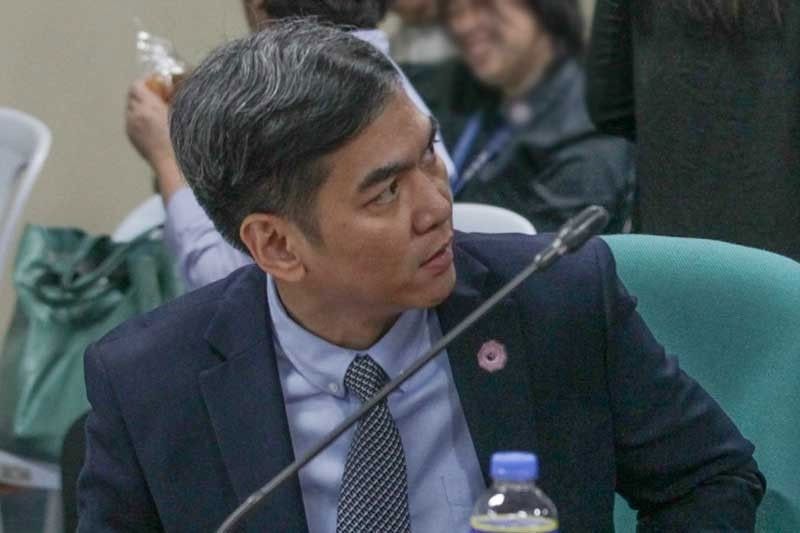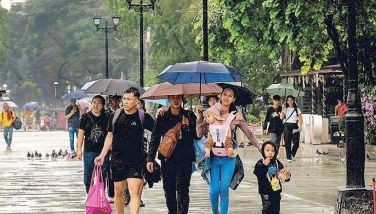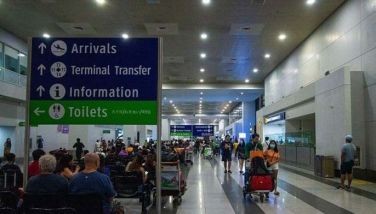AMLC denies inaction on $600 million cash believed laundered

MANILA, Philippines — An Anti-Money Laundering Council (AMLC) official has strongly denied allegations that the body has been remiss in taking action on the suspicious influx of over $600 million in cash brought in by Filipino and Chinese couriers in the last seven months.
AMLC executive director Mel Georgie Racela issued the statement in response to Sen. Richard Gordon’s warning that the council’s officials as well as those from other agencies who have been remiss or “tolerated” the entry of the huge amounts of dollars, believed laundered subsequently in the Philippines, may be charged with criminal offenses, including negligence.
Racela said the primary regulators of the entry of foreign currencies are the Bangko Sentral ng Pilipinas (BSP) and Bureau of Customs (BOC).
He added that the AMLC only comes in after the BOC submits the Foreign Currency and Other Foreign Exchange-Denominated Bearer Monetary Instruments Declaration Forms (foreign currency declaration forms) to the AMLC for analysis.
The BOC submits these forms within the first 10 days of each month, as stipulated by the memorandum of agreement between the two agencies.
“We must also understand that in money laundering, there are two crimes: the predicate offense and the money laundering offense. You can never commit money laundering without committing the predicate offense, the list of which is found in the Anti-Money Laundering Act (AMLA) of 2001, as amended,” Racela said in a statement emailed to The STAR.
The AMLC has been looking for the predicate offense since March 2019, when the cash dollars started to enter the country, according to the official.
Racela said the AMLC has been collaborating with the country’s domestic and foreign counterparts to gather intelligence information.
“We have also alerted the BOC in August and the BSP in September, both in 2019. Needless to say, all these things would not have been acted upon by these agencies without the AMLC investigating in March and sounding the alarm in August,” he added.
Gordon’s Blue Ribbon committee on Thursday started its investigation into the influx of cash dollars – brought in mostly in suitcases – that he and other senators strongly suspected was dirty money that was laundered and funded illegal activities in the country.
“At the very least, the AMLC (officials) must be charged with negligence, along those with other agencies that abetted this (entry of dollars),” he said.
The senator slammed Racela for the apparent “tolerance” of his office in dealing with the matter.
“Is (Racela) lawyering for them? My God, he’s taking the slow boat to China,” Gordon said.
He added that the influx of cash dollars was detected as early as September, which made him suspect that there was “massive collusion” among officials of concerned government agencies – the reason why the entry of the currency continued.
The AMLC, Department of Finance, BSP or even the BOC, which first raised alarm on the matter, could have seized the dollars on mere suspicions and filed cases that would have forced the real owners of the money to come out.
Gordon said the next hearing would focus on the identities and background of the couriers of the dollars, including a certain Rodriguez family, who, the inquiry found out, had brought in at least $282 million or P14.26 billion into the country in suitcases or boxes since September last year.
The senator added that one member of the family, Simon Rodriguez, was apprehended in September last year for not declaring the dollars he had brought in, but he continued to bring in cash dollars in the coming months, when he declared them.
The senator said the authorities should have also asked the Interpol to verify the identities of the Chinese nationals who also brought in cash.
‘Sanctions’
Meanwhile, Sen. Imee Marcos yesterday warned that the Philippines has six months left to amend the country’s AMLA or risk facing international sanctions that will dampen confidence in the country’s business environment and political stability.
Marcos, who chairs the Senate committee on economic affairs, said the country is in the middle of a 12-month observation period set by the world’s anti-money laundering body, the Paris-based Financial Action Task Force (FATF).
“When October comes, there must be more teeth to the AMLA or we will again be labeled a ‘non-cooperative country’ or a ‘high-risk jurisdiction,’ like in 2001, before the AMLA was enacted into law,” she added.
The entry of billions of pesos worth of foreign currency in recent months has revived concerns about laundered money being used to set up illegal businesses for gambling, human trafficking, prostitution and illegal drug dealing, and to fund anti-government and terrorist activities.
Possible AMLA amendments that Marcos is considering in a draft bill are: to give the AMLC “more teeth” to investigate suspicious transactions without being hindered by restraining orders from the lower courts; to add real estate developers and brokers to the list of persons covered by the law; and to consider tax crimes and violations of Republic Act 10697 or the Strategic Trade Management Act, or the law against the proliferation of weapons of mass destruction and their financing, as predicate offenses to money laundering.
If the Philippines fails to pass FATF scrutiny and is marked as a threat to the international financial system, banking sanctions may again be imposed on overseas Filipino workers’ remittances and slow down their crucial contribution to the country’s foreign currency reserves, according to the senator.
Marcos said foreign countries may also impose stricter and longer due diligence checks on Philippine companies, affecting the ease of doing business.
The additional costs that will be incurred from stricter business requirements may also force banks to apply higher interest rates, which in turn will raise production costs for local businesses, making both of them less competitive.
- Latest
- Trending





























